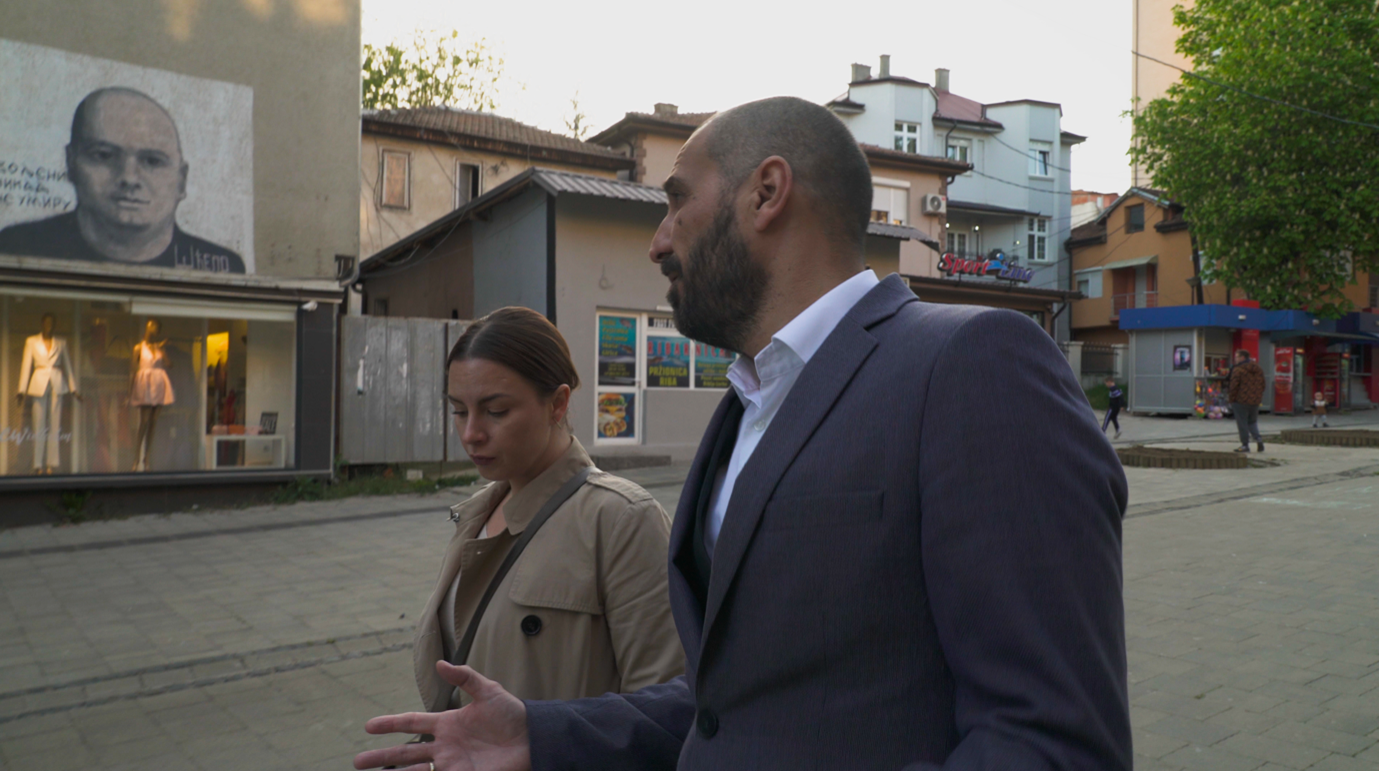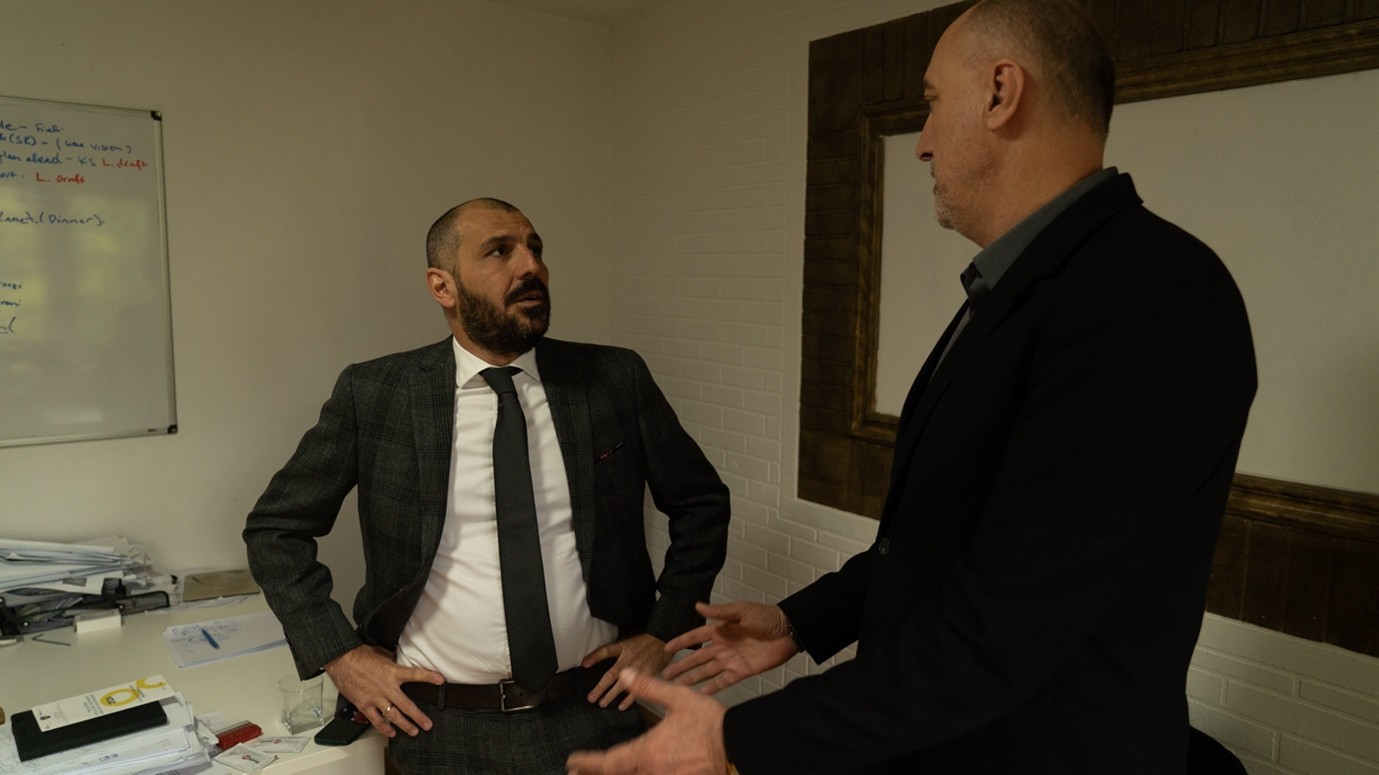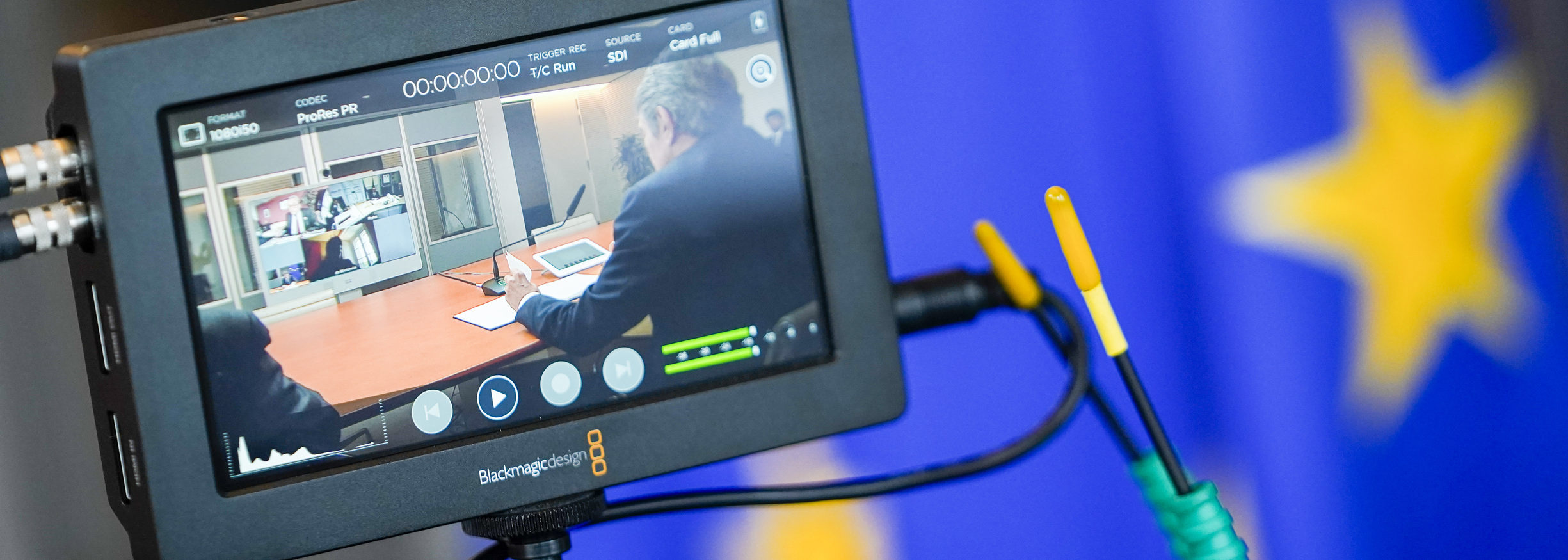The Institute at 10 – Being the Bridge: Negotiating Identity Politics in Western Balkans
17/04/2025
In 2024, on the occasion of the 10th Anniversary of the establishment of the European Institute of Peace, the Institute commissioned a series of articles about our work, interviewing staff members, senior advisors, and people who have worked with us in the past decade on conflict prevention and resolution in different areas of the world.
How best to communicate our work is not obvious. Discretion is often an essential ingredient to what we do, for example around dialogue and engagement with parties to conflict and their supporters. But we cannot afford not to communicate in an increasingly crowded media and public affairs environment, one in which political and public recognition is too low regarding the value and practical benefits of the work that we and our partners undertake. “What you are doing is great – why aren’t you telling more people about it?” is a typical reaction from partners that want to increase their support for us. Sharing these stories about the Institute’s work is of the ways in which we are responding to these requests.

As the last of the evening light fades over Pristina, Kosovo, the European Institute of Peace’s Senior Advisor in the country, Senad Šabović, enters his local tavern, Taverna Erolli, to watch a football match. Inside, the owner is trying to pirate the match on the bar’s TV: last year, Kosovo stopped the broadcast rights of Telekom Srbija’s Arena Sport, after it televised messages of support for an attack on Kosovo Police in the Serb-majority village of Banjska by Serb gunmen in September. The loss of broadcast rights for sports became the next everyday frustration springing from the stalled ‘normalisation dialogue’ that’s been ongoing between Kosovo and Serbia following Kosovo’s declaration of independence — a declaration still not recognised by Serbia. The political effect of those daily frustrations is something that Senad understands with a local’s nuance, and brings to bear in his work for the European Institute of Peace’s efforts to bring stability to Kosovo.
Though Kosovo’s war may have ended over a quarter of a century ago, ongoing tensions between Kosovo and Serbia still affect so many aspects of people’s daily lives here. From the lack of recognition for educational and professional certifications, to cumbersome and expensive barriers on trade, exchange rates, postal services and communications infrastructure, much remains still unresolved. The simmering tensions occasionally offer the rest of Europe opportunities to understand the local frustration. In 2018, digital clocks across Europe suddenly fell behind by six minutes, causing disruption and confusion across the continent. When technicians finished their investigation, it turned out that a row between Kosovo and Serbia over outstanding electrical bills had caused a hiccup in the entire European energy grid. For Senad, the situation is exasperating.
We’re 25 years since the war and it’s almost an insult to the average person’s intelligence that we still have this level of tension as we speak today.
Daily frustration masks more serious possibilities. The Banjska attack was just the latest in a worrying string of violent incidents in the western Balkans. In May 2023 more than 90 NATO peacekeepers were injured in clashes with residents of Serb-majority municipalities in the north, after Serb residents boycotted elections and the local government forcibly installed rival Albanian mayors. Serbia responded by manoeuvring troops closer to its border with Kosovo, while NATO reinforced its presence with an additional 700 troops. Many in Kosovo say the international community has abandoned them after the military intervention in 1999, and simply doesn’t understand the risk of renewed fighting that remains today. Populist politicians on both sides increasingly resort to revisionist rhetoric about national identity to win support.
The Need to Belong

The profound social and cultural shifts that have accompanied globalisation have today left many disoriented, feeling a loss of identity as the certainties of the past rapidly dissolve.
Although a growing recognition of our identity as ‘global citizens’ is no doubt healthy, finding peace is not just about recognising our common interests, needs and humanity. It’s also about respecting and accommodating our differences. We don’t want to be everybody, everywhere, because that’s the same as being nobody nowhere. We also want to feel that we are embodied as someone, rooted somewhere – something that was denied to so many in Kosovo for so long. With little else to offer voters in terms of real material benefits, it’s a sentiment that so-called ‘populist’ politicians not just here, but everywhere from Budapest to Brandenburg have been playing on to win support.
The question is how to strike the balance between local communities and global society, and the western Balkans lies at the cutting edge of that challenge. How can we build institutions capable of respecting difference, while also addressing common needs for security, reliable services, and stable livelihoods?
Particularly when in the tavern, where a picture of Senad hangs on the wall alongside other regulars, they still can’t even get that evening’s match on.
Normalising Normalisation
The breakaway of Kosovo, previously a majority ethnic Albanian province in southern Serbia, was the last of the big Balkan conflicts of the 20th century. Forces led by Slobodan Milošević killed some 10,000 Albanian Kosovar civilians in retaliation for their community’s mobilisation, before in 1999 NATO eventually intervened with a three-month bombing campaign, forcing the withdrawal of Serb troops. After spending the next decade as effectively a UN protectorate, Kosovo declared independence in 2008. Recognised by a majority of Western countries, the declaration is still not universally accepted, and deep scars from the war remain. A legacy of ethnic divisions is part of a long list of grievances and issues that remain unresolved.
In 2011 an EU-mediated normalisation dialogue was initiated between Kosovo and Serbia with the aim of relieving political, social and economic tensions.

In the early years, the Brussels Agreements sought to resolve issues including freedom of movement, recognition of educational diplomas, regional representation and trade and international customs. Finally formalised in 2013, the landmark negotiations went further, when both sides agreed not to block or hinder the other’s integration into the EU.
But the most contentious issue of all did not get resolved: the status of the Serb-majority municipalities in Kosovo. The vast majority of Kosovo’s population is ethnically Albanian, and after Kosovo’s independence in 2008, significant communities of ethnic Serbs now found themselves a minority in the new nation. The idea proposed in the 2013 Brussels Agreement was to integrate these municipalities into Kosovo’s legal framework, but grant Serbian-majority municipalities a degree of self-organisation.
The process had enough backers, but implementation proved tricky. Many in Kosovo, spurred on by opportunistic political rhetoric, feared that the new Municipal Association would essentially become an extension of Serbia. At the same time, many Serbs in the north of Kosovo, echoing rhetoric rising in Belgrade, were afraid that the deal would cut them off from support from Serbia, and abandon them to an Albanian government in Pristina.

A State of Disassociation
Central to these fears was the rise of populist and revisionist narratives in Kosovo’s national politics. And this rise in populism, just as it has been almost everywhere, was both a cause, and a result of the increasing rift between civil society, the government, and international institutions. In Kosovo, populist politicians – perhaps out of belief that the more technical governance agendas will not rally up voters – have for years worked hard to portray themselves as defenders of the nation, and to convince their constituents not only that Serbia fully intended to reclaim sovereignty over its erstwhile territory, but also that the EU was forcing Kosovo’s hand into capitulating to Serbia’s demands at the negotiating table.
Visar Ymeri, himself a former member of the now ruling party turned prominent civil society activist knows the game intimately. He says that in private, politicians like Kosovo prime minister Albin Kurti would accept the terms of the Association of Serb Majority Municipalities, but to do it publicly would be political suicide.
With little improvement in economic development, health or education, during his tenure, Visar says that Kurti only really has his persona as an uncompromising defender against Serbia and pushy bureaucrats from Brussels. But of course, in order for this persona to mean anything, he has to paint both Serbia and the EU in a particularly threatening light, which only serves to pour fuel on the already smouldering flames. And Belgrade’s aggressive rhetoric towards Kosovo, as well as its active attempts to block Kosovo’s pathway to Europe despite former agreements not to is certainly doing an excellent job of fanning the flames on the other side of the border.
Popularism creates polarisation not just across different groups within societies, it also polarises power vertically, isolating the state from other states and the wider international community. And it also isolates the state from civil society, whose greater diversity of voices would threaten the one-dimensional nationalist rhetoric of the ruling party.
Jovana Radosavljevic is the executive director of New Social Initiative, a North Mitrovica-based civil society organisation working on the topics related to the Kosovo-Serbia dialogue and non-majority community rights. As she sees it, a diversity of civil society inputs can help add nuance to the debate, and break the monopoly of single, simplistic narratives. But it’s often difficult for them to find a space at the table. According to her,
what we have now in Kosovo is a very negative trend unfortunately, where the space is shrinking in regard to the openness of the government to accept any sort of input or criticism coming in from different actors. I think it’s really important to ensure that civil society has the manoeuvring space to reflect the community needs and concerns as well.

But for Visar, the core of the issue is the story that’s being told about the Municipal Association, rather than the Association itself.

To be quite honest, this is not an issue with the citizens of Kosovo. I mean, the association is not going to be visible. Nobody from Prishtina ever travels to Leposavić. Have you ever met somebody that just went to Leposavić to have a coffee? Never. It was made as a big fuss by Vetevendosje [Kurti’s political party] mostly but also by a part of the media and civil society – in 2013 and 2015 there was a lot of misinformation about the Association.”
Rhetoric born out of political positioning as much as from ideology is doing nothing to help the region turn over a new page.
No wonder Senad and others are frustrated. The more civil society becomes fragmented, the more fear takes over, and the more susceptible people are to populist and nationalist rhetoric. And the more the Kosovar state becomes isolated from the international community which historically supported and protected it, the more it feels that it has to adopt a defensive posture against Serbia. What is needed, is a gradual reconnect of the various layers, for people to regain a sense of confidence in their wellbeing as a citizen of a democratic society.
A Pragmatic Approach
With the help of Senad’s local expertise and the Institute’s vast network of contacts at both the track II and track I level, the Institute was able to design an intervention which quickly went to the heart of the political impasse. As with so many other European Institute of Peace programs, a pragmatic approach with an early focus on the issue of the Association of Serb-majority Municipalities was key. In turn that engagement could serve as the point of entry to eventually tackle the political blockage.
Despite almost a decade of rhetoric at all levels about moving forward with the Association, there was still no practical proposal on the table which would allow the government and the international community to make progress. The first task the European Institute of Peace gave itself was to engage with experts and community groups in civil society and understand what exactly was needed to transform the Association into a workable reality.
Throughout 2022, the Institute worked in partnership with the Friedrich Ebert Stiftung (FES) to develop an actual draft statute for the establishment of the Association, which was then submitted to the highest levels of decision-makers at the national and international level. Senad and other team members consulted with track II and other key actors and platforms, to draft a tangible proposal that would satisfy all parties.
The goal was to demonstrate how an association could work in full compliance with Kosovo law, and at the same time, make a substantial offer to the encompassed Kosovo Serb-majority municipalities. One of the key issues was the widespread doubt and confusion about whether the creation of such a municipal association would be constitutional according to Kosovo law. Understanding this concern, the EIP worked intimately with a constitutional lawyer to ensure that all potential conflicts were addressed and mitigated, so that they would leave no chance for the government or other actors to find pretexts as to why it could not be implemented.

The EU had consistently pushed Kosovo to resolve the issue of the Serb-majority Association. But without a concrete draft statute, the process could not move forward, plagued by doubts about its constitutional legality. While only one factor in a series of diplomatic steps still underway, the consolidated draft arrived at the right time to dispel the central Association myths. And it coincided with Brussels pushing a Franco-German, comprehensive proposal that prominently included provisions demanding the establishment of the Association. The subsequent EU proposal for the Association, submitted to the parties in October 2023 under an initiative largely led by France and Germany, drew substantially on the European Institute of Peace/FES document.
The next task was to consult with local stakeholders, including civil society, to pre-empt political fearmongering, and here again the Institute’s connections not only to track I actors, but also to civil society, were of crucial importance. Though falling short of the full adoption that was hoped for, Kosovo Prime Minister Albin Kurti for the first time publicly expressed a willingness to seriously re-open the issue, following the submission of the draft statute. Later, in the context of Kosovo’s application for the Council of Europe in spring 2024, the Kurti government expressed its appreciation of the proposed statute. There are no quick wins in the work of conflict resolution, but this was certainly a big step forward after almost a decade of political deadlock.
The ball is now in the government’s court. As of April 2024, the Parliamentary Assembly of the Council of Europe recommended that Kosovo be invited to become a member. The final decision now rests with the Committee of Ministers, who have said that membership would be contingent upon Kosovo fulfilling its commitment to initiate the Association process. It’s certainly not the end of the story by any means, and what happens next will largely depend on whether Kosovo and Serbia are able to stand by their commitments. But if they genuinely want to pursue the path to greater peace and prosperity, they can now draw on credible and pre-vetted proposals to put words into action.
United in Diversity
For some elites in Brussels or Washington, events in Kosovo may perhaps seem marginal. Conflicts in Gaza and Ukraine understandably receive far more attention. But the disputes seen here are not just about Kosovo and Serbia. They’re illustrative of so many of the conflicts we are facing today and will increasingly face in the future. The municipal association is at the cutting edge of the question as to how to blend local autonomy with national, regional and global political, social and economic modes of life.
Each layer of collective organisation is only as strong as its constitutive parts. The EU is strong only to the extent that its member states are strong. Kosovo and Serbia are strong only to the extent that their municipalities and communities are strong. And communities are strong only to the extent that the individuals within them are strong. Devolution of power, greater independence and individualism are wonderful things that can spur great creative change, but social groups must remain connected if they are to thrive in today’s world. The EU’s ‘United in Diversity’ motto is a nice ideal.
If you ask Senad, Jovana or Visar and they will tell you just how much local knowledge, sensitivity, and work it takes to put that motto into practice.

